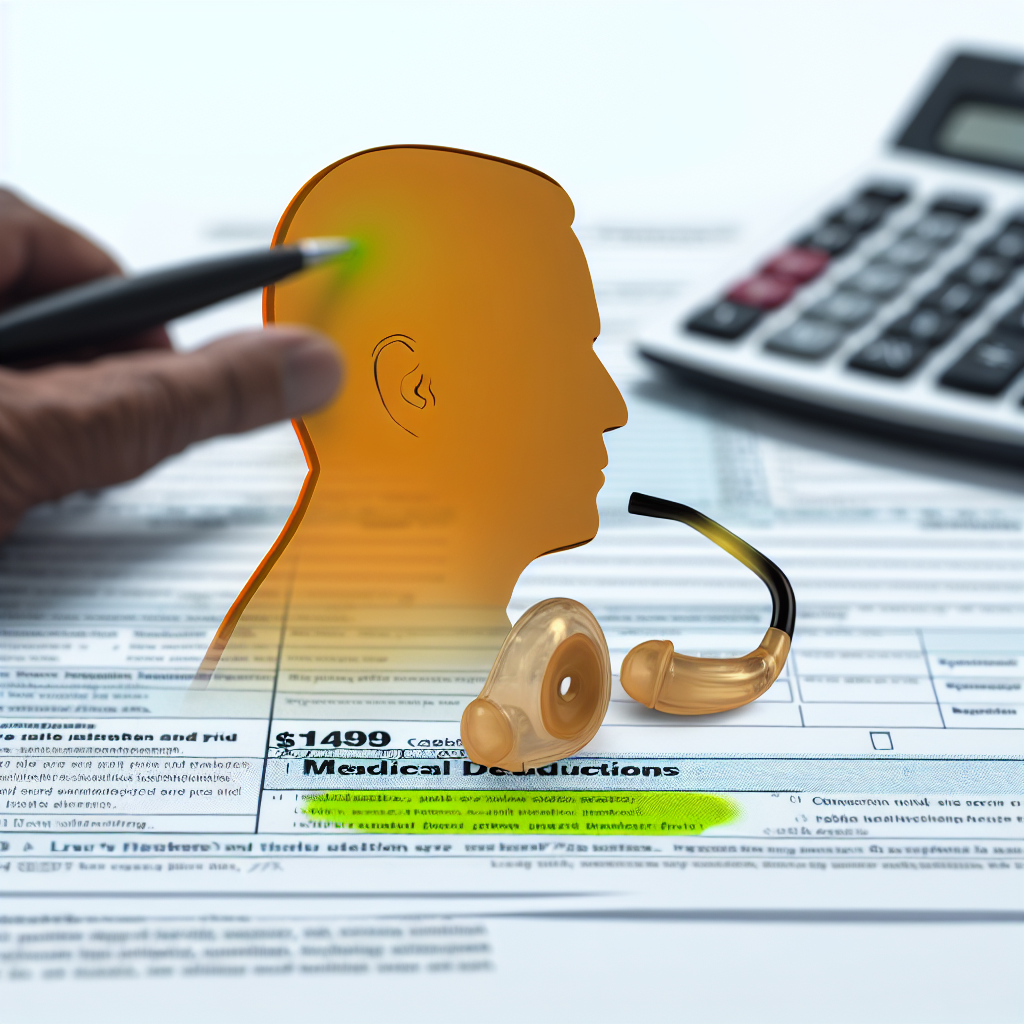
When you’re dealing with hearing loss, the cost of hearing aids can be a significant financial concern. Many people wonder if they can claim hearing aids as a tax deduction to help offset these expenses. The good news is that hearing aids are indeed tax deductible in many cases, falling under medical expenses that can be claimed on your federal tax return.
Understanding Medical Expense Deductions for Hearing Aids
The Internal Revenue Service (IRS) allows taxpayers to deduct qualified medical expenses, including hearing aids, when they exceed a certain percentage of your adjusted gross income (AGI). For tax years 2023 and beyond, medical expenses that exceed 7.5% of your AGI can be deducted if you itemize your deductions.
This means that if your adjusted gross income is $50,000, you can deduct medical expenses that exceed $3,750. Your hearing aid costs, along with other qualifying medical expenses, must surpass this threshold to be deductible.
What Hearing Aid Expenses Are Tax Deductible?
When it comes to hearing aid tax deductions, several related expenses may qualify:
- Hearing aid devices – The cost of the hearing aids themselves
- Hearing aid batteries and accessories
- Professional hearing tests and evaluations
- Hearing aid fitting and adjustment services
- Hearing aid repairs and maintenance
- Hearing aid insurance premiums (if not covered by employer plans)
- Travel expenses to and from hearing healthcare appointments
At calhearing.com, we provide comprehensive hearing healthcare services that may qualify for tax deductions, helping you maintain your hearing health while potentially reducing your tax burden.
Documentation Requirements for Hearing Aid Tax Deductions
To successfully claim your hearing aid expenses as tax deductions, proper documentation is essential:
- Keep all receipts – Maintain detailed records of all hearing aid purchases and related expenses
- Medical documentation – Obtain written prescriptions or recommendations from healthcare providers
- Insurance statements – Keep records of any insurance reimbursements
- Payment records – Document all payments made for hearing healthcare services
Professional hearing testing documentation can help support your medical necessity claims when filing your tax return.
HSA and FSA Options for Hearing Aid Expenses
In addition to tax deductions, you may be able to use pre-tax dollars from Health Savings Accounts (HSAs) or Flexible Spending Accounts (FSAs) to pay for hearing aids. These accounts allow you to:
- Pay for hearing aids with pre-tax dollars
- Reduce your overall taxable income
- Avoid the 7.5% AGI threshold requirement
- Cover related expenses like batteries and repairs
State Tax Considerations
While federal tax deductions for hearing aids follow IRS guidelines, state tax laws may vary. Some states offer additional deductions or credits for medical expenses, including hearing aids. Check your state’s tax regulations or consult with a tax professional to understand your local options.
Comprehensive Hearing Services at Cal Hearing
At Cal Hearing, we understand that hearing healthcare involves more than just purchasing hearing aids. Our comprehensive services include:
- Hearing Testing – Professional evaluations to determine your specific hearing needs
- Hearing Aid Fitting – Expert fitting services to ensure optimal comfort and performance
- Tinnitus Therapy – Specialized treatment for ringing in the ears
- Hearing Protection – Custom solutions to prevent further hearing damage
- Hearing Aid Repairs – Professional maintenance and repair services
We proudly serve multiple communities, and you can learn more about our areas we serve to find convenient locations near you.
Tips for Maximizing Your Hearing Aid Tax Benefits
To make the most of your hearing aid tax deductions:
- Plan your purchases – Consider timing major hearing aid purchases to maximize deductions
- Bundle medical expenses – Combine hearing aid costs with other medical expenses in the same tax year
- Keep detailed records – Maintain organized documentation throughout the year
- Consult professionals – Work with both hearing healthcare providers and tax professionals
Insurance Coverage and Tax Implications
If your insurance covers part of your hearing aid costs, you can only deduct the out-of-pocket expenses you actually paid. This includes deductibles, copays, and any costs not covered by your insurance plan. Remember to subtract any insurance reimbursements from your total expenses when calculating your deduction.
Additional Resources for Hearing Healthcare
For more information about hearing health, financial assistance options, and hearing aid technology, visit our resources section. Our blog also provides valuable insights into hearing health topics and the latest developments in hearing aid technology.
Conclusion
Hearing aids are generally tax deductible as medical expenses when they exceed 7.5% of your adjusted gross income and you itemize your deductions. Proper documentation and understanding of the rules can help you maximize these benefits while investing in your hearing health.
Don’t let financial concerns prevent you from addressing your hearing needs. The combination of potential tax deductions, HSA/FSA options, and insurance coverage can make hearing aids more affordable than you might think.
Ready to take the next step in your hearing healthcare journey? Contact us today to schedule a comprehensive hearing evaluation and learn more about your options for improving your hearing health while potentially reducing your tax burden.









